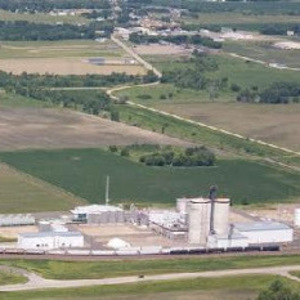Granite Falls Energy extends shutdown

PHOTO: Granite Falls Energy
April 27, 2020
BY Erin Krueger
Granite Falls Energy LLC filed an 8-K with the U.S. Securities and Exchange Commission on April 27 announcing its 62 MMgy ethanol plant in Granite Falls, Minnesota, will remain idle through at least May 18.
The facility was idled on April 3 to perform regularly scheduled temporary maintenance. That shutdown was originally scheduled to end April 17. Earlier this month, Granite Falls announced it would extend the shutdown until at least April 30. The existing shutdown has again been extended.
In an April 27 filing with the SEC, Granite Falls Energy said company management decided on April 23 that the shutdown will continue until at least May 18 “due to market risks and uncertainties related to the COVID-19 pandemic and its ramifications.”
Advertisement
Advertisement
As the anticipated May 18 start state approaches, Granite Falls said it will evaluate whether it is appropriate to keep the plant idle for a longer period of time. The company said it will provide additional disclosure in the event it determines an additional extension of the idle period is appropriate.
Advertisement
Advertisement
Related Stories
The U.S. Energy Information Administration maintained its forecast for 2025 and 2026 biodiesel, renewable diesel and sustainable aviation fuel (SAF) production in its latest Short-Term Energy Outlook, released July 8.
XCF Global Inc. on July 10 shared its strategic plan to invest close to $1 billion in developing a network of SAF production facilities, expanding its U.S. footprint, and advancing its international growth strategy.
U.S. fuel ethanol capacity fell slightly in April, while biodiesel and renewable diesel capacity held steady, according to data released by the U.S. EIA on June 30. Feedstock consumption was down when compared to the previous month.
XCF Global Inc. on July 8 provided a production update on its flagship New Rise Reno facility, underscoring that the plant has successfully produced SAF, renewable diesel, and renewable naphtha during its initial ramp-up.
The USDA’s Risk Management Agency is implementing multiple changes to the Camelina pilot insurance program for the 2026 and succeeding crop years. The changes will expand coverage options and provide greater flexibility for producers.
Upcoming Events










